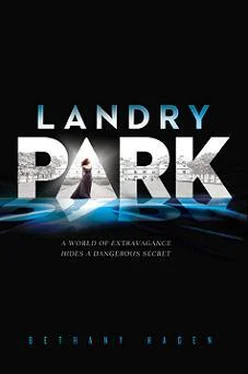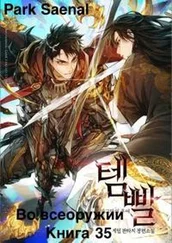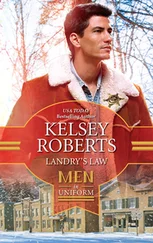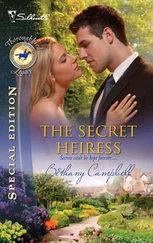I took a seat in the back of the room and watched the parade of hopefuls approach Cara and David. Their dancing cards would no doubt be filled within the next few minutes. To my surprise and the surprise of the girls surrounding David, he broke off and started walking toward me. People moved out of his way as he strode across the room, staring at him and then at me. Equal parts mischief and desire were in his face, and I had no idea if he was David the bachelor or David the boy who could guess my favorite stories or even David from the car—barbed and full of uncomfortable questions I didn’t have the answers to.
“Would you like to dance with me?” he asked, extending a hand.
I was frozen to the chair. “I—”
All eyes in the room, including Cara’s, were on me. I knew without looking the expression on her face: livid, territorial. Every ounce of logic in me begged me to say no to David, yet, this close, I couldn’t ignore the message he was telegraphing. He genuinely wanted to dance with me.
He took my hands and pulled me to my feet. “Luckily for you, I have learned how to interpret your silences. This silence means, ‘Yes, David, I would love to dance with you.’” He led me to the center of the floor. The band raised their instruments, David placed my hand on his shoulder, and suddenly, I was in his arms.
He danced lightly, but the heat from his hand at my waist burned through my dress.
“You don’t look like you are enjoying yourself, Madeline,” David reproached. “It is a debut. You are supposed to be drunk on plum wine by this point, and why not? The Westoffs imported crates of the stuff.”
We spun in a circle, and I could see the curious gazes of onlookers, wondering why David had picked me, and why I’d consented, when I’d made a career out of only begrudgingly dancing with people, unless they were Jamie.
David pulled me closer as we spun. “I want to know,” he said, his mouth very near my ear. “Why does my Madeline look so forlorn?”
“I am not forlorn,” I said. “And I am not your Madeline.”
“And the gray eyes flash. You’re mad at me, then?”
“Yes.” I didn’t risk saying more—he didn’t need to know how confused I felt.
His gleaming shoes slid against my slippers, our steps completely synchronized, his leg pushing against my skirts. “Are you sad that I am leaving?” he asked. “I am quite sad myself.”
I felt suddenly tired of his act—and of playing along with it.
“You are not fooling me,” I said, keeping my eyes on the band, on the other dancers, anywhere but on his face.
“I assure you that I am indeed sad—”
“I know you are,” I interrupted. “I don’t mean that. I mean this act you’re putting on for everybody. All charm and no substance.”
He grinned a quick canine grin. “It’s not an act, I promise.” He lifted me up, his hands dangerously close to my breasts, flattened by the corset.
The girls nearby giggled while being lifted by their own partners. Once my feet touched the floor, I moved David’s hands back to my waist.
“Why can’t you just accept that I am really this charming?” he asked.
“Because I know better.” As part of the dance, he drew me close, so that my mouth was next to his ear. I took the opportunity to press my point. “I saw you help that Rootless girl.”
For a moment, his grip on my arm grew so tight, I thought he’d bruise me.
Finally he let go. “You saw nothing,” he said, stepping back and bumping into a dancing couple. The clockwork of the dance jammed. The dancers stopped to stare and the band stopped playing mid-tune. Gone was the casual air, the expression that suggested David thought the whole evening was a grand joke. He looked pale.
And furious.
“You should go,” he said, his voice choked.
“Why? Because I know that you helped her?”
He glanced around the room. The murmurs and rustles stilled to nothing as everybody leaned forward to listen. “I think you are mistaken. I was not in the park that day. Maybe you were just daydreaming about me.”
My face burned. “You’re lying,” I told him.
“And you’re delusional.”
We were both breathing heavily by this point, inches away from each other. “You should go,” he said.
“You can’t make me leave. This is not your house.”
Cara swished up, eyes narrowed. “But it is my house, and you’re making a scene.”
“I won’t forget what I saw,” I told David. And with the eyes of the city boring into my back, I left the ballroom, forcing myself to walk as slowly as dignity would allow.
I woke up the next morning feeling exhausted and listless. I’d spent the night stirring and sighing in the silvery moonlight, vacillating between anger at David and anger with myself, between feeling hurt and feeling confused. In the darkest hours, I let a sharp needle of remorse dig at my stomach as I went over everything that had gone wrong since Marianne Wilder’s debut.
I hadn’t found Cara’s attacker. I hadn’t obeyed or pleased my father. I hadn’t discovered why David helped that girl in the park, why he seemed so interested in me, or why he flitted around the edge of my thoughts constantly when all I wanted to do was forget him.
And the look on his face when he told me to go…
I curled up on my bed and let that needle of shame grow hotter and hotter until I thought it would burn a hole inside me, falling asleep only after I’d numbed my mind with programs on my wall screen.
The morning was no better. As Elinor brought a breakfast tray to my room, I put my head in my hands.
“Are you all right, miss?” Elinor asked, leaving the tray and helping me sit. “You look like you’re about to be sick.”
I caught sight of myself in the mirror. My sleepless night had left dark circles under my eyes and an ashen cast to my skin. I looked terrible.
“I’m okay,” I said. “I just—I feel a little lost right now is all.”
“Why don’t you take a walk to the university and stroll around the grounds?” Elinor asked, walking over to the wardrobe and pulling out a floral organza dress with flouncing sleeves and a wide green sash. “You could even take lunch at the country club, since it’s so close.”
The country club. Philip Wilder might be there.
“You know, Elinor, I think that is an excellent idea.”
* * *
I skipped the university altogether. I didn’t know if Philip would be at the club or not, but he and his friends usually spent most of their days playing golf or tennis while working their way through hundreds of dollars of whiskey and opium. I also didn’t know what I really hoped to accomplish; it wasn’t as if I expected him to admit to assault and battery in the middle of one of the oldest gentry institutions in the city, but I did know that I couldn’t stand this nagging feeling that I wasn’t doing enough, that I was standing by as uselessly as those people in the old video files from the academy, who simply watched as victim after victim was forced into the gibbet cage.
The country club had been founded a century or so before the Last War, by a man named Nichols who’d developed much of Kansas City. Though he’d died before many of the Uprisen had even been born, he was revered as a man ahead of his time, pioneering the idea of an engineered society, of a leisurely and protected life for the upper class. A statue of him gazing gravely toward the world he’d helped inspire stood outside the country club.
I steeled up my courage and walked past the statue, into the dimly lit lobby, all heavy wood and stone and blank-faced servants. Inside, the shouting from the pool and the zipping sound of the hydrogen golf carts vanished, and was replaced by the sound of murmuring voices and clinking glasses.
Читать дальше












